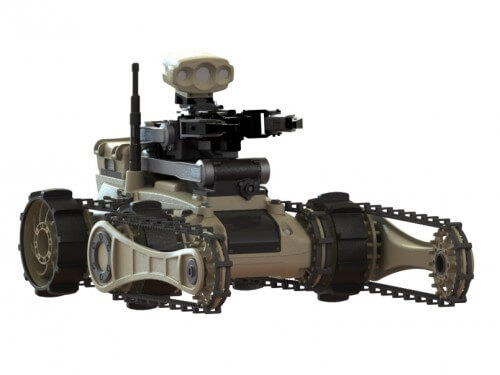Prof. Ben Yisrael said these things in his role as chairman of the MOLMP. He said these things in a special discussion held by the Science and Technology Committee, in which an exhibition of Israeli robots was also presented.

The Science and Technology Committee of the Knesset held a discussion and exhibition of Israeli robots yesterday (Tuesday).
The Chairman of the National Council for Research and Development of Citizens Prof. Yitzhak Ben-Israel said that the field of robotics will be a significant growth engine and that it will be the next thing in the industry, because robotics combines all disciplines. "Most of the investments in R&D in Israel come from the business sector, so the big money is also in the civil sector." According to him, "Israel has a weakness in relation to the world in applied research. One of the means to deal with the problem is the establishment of a national research institute."
Haim Russo from the National R&D Council said "In the last three years, there has been a global trend of national robotics initiatives. The technologies evolved as governments realized that this tool could revolutionize a national level. The largest companies in the world are buying companies and investing huge sums of money in robotics. The main goal of the companies is to build a higher standard of living, raise the level of medicine and make the manufacturing industry more competitive, after the Japanese and Americans lost the industry to China."
The chairman of the Israeli Robotics Association Prof. Zvi Shiler said that the year 2015 will be remembered as a turning point in the development of the field of robotics in Israel and in the whole world. According to him, "Europe is investing 2.4 billion dollars in robotics, which is a small amount compared to the companies Amazon, Google and Apple. Today the world market is about 30 billion dollars. The forecasts say that in the next decade, the market will grow to 400 billion dollars." Schiller presented research conducted at universities in Israel. "The Aerospace Industry is planning a robot that will replace the vehicle that tows the plane from the parking lot to the runway. The robot will be controlled by the pilot. Schiller believes that robots will change our lives. If we invest in the field, we will be at the forefront of global technology," said Schiller.
Prof. Moshe Shem from the Technion presented a robot for back and brain surgery. According to him, "the robot performs an analysis with a higher level of precision than a human hand. The system has already performed over 10,000 surgeries worldwide. The operated did not suffer any damage, as a result of the operation, this compared to problems that 'normal' operated people suffered from. The robot is precise and performs the operation with minimal invasiveness in the patient."
Prof. Doron Habezalet from the Ministry of Defense said "The next generation in the field of robotics, will be a robot that will receive voice instructions from a human, the robot's level of understanding will bring it to make decisions autonomously." Habslet believes that the robotic revolution will reach mobile applications.
A representative of a robot company who himself serves as a company commander in the infantry presented robots for military use. The hunting robot that knows how to scan buildings. According to him, at Eitan Cliff, many buildings in Gaza were scanned using it. Another robot with a very high vision and offense ability. The robot will go into action with simple training for every infantry fighter. The robot was sold to the US Army and is taking an operational part in the US Army in Afghanistan.
Udi Pels, CEO and entrepreneur of Friendly Robotics, presented a robot capable of mowing tens of dunams of grass at record speed. The robot is controlled via a mobile app. The robot knows how to go to work on its own and return to an autonomous docking station. Pels also introduced a pool cleaning robot.
Dr. Ilana Nisky, an expert in neuroscience who founded the medical robotics laboratory at Ben Gurion University, presented a medical robot that performs minimally invasive surgeries.
Ben Zion Kabakov presented vegetables grown in an organic greenhouse, an industrial production greenhouse that operates automatically on the roof of a building and is handled by robots that know how to grow plants, which causes the amount of crops to triple as a result of crop density and individual treatment of plants. Kabakov said that with the help of the agricultural robot, we grow organic vegetables and we reached 100% pest control without pesticides, instead of a few percentages with normal pest control. And because of this, the vegetables received a high level of kosher since the vegetable is free of insects. The experimental greenhouse in an area of 5.5 dunams is located in Ma'ale Adumim. Kabakov plans to build more greenhouses on the roofs of residential buildings. According to him, this is the future for a domestic agricultural market.

2 תגובות
He was indeed an extraordinary genius. I had the privilege of working with him. What I have learned from him in a few years, I have not learned in decades.
About 30 years ago there was a world scientist named Gil Hagiz who was a leader in the field of global robotics.
And what happened, Nada!
If the State of Israel would invest and give development grants to global knowledge-rich enterprises
Today we had completely different results.
It is sad to say that the vast majority of the robotic technologies in Israel simply will not survive.